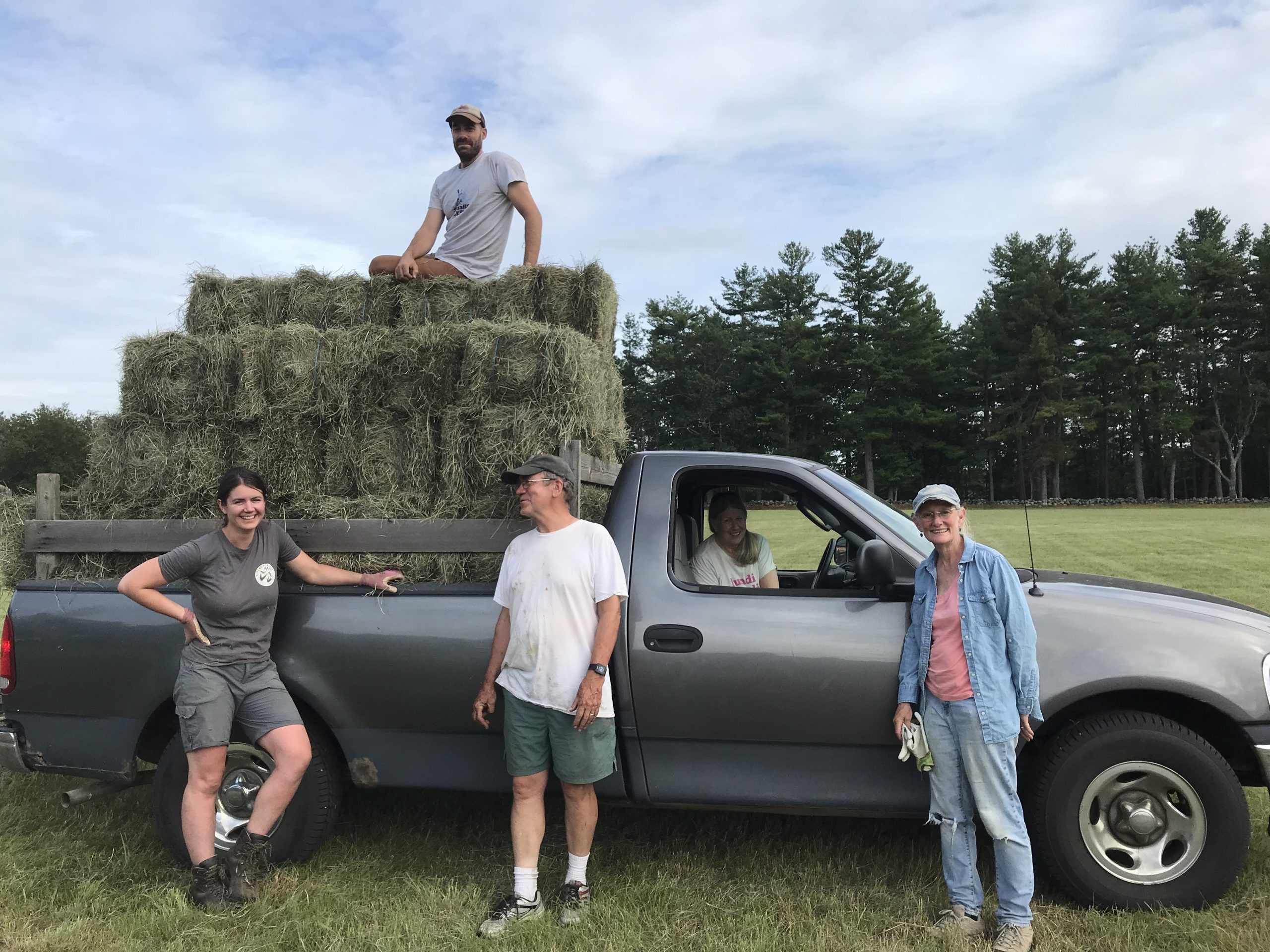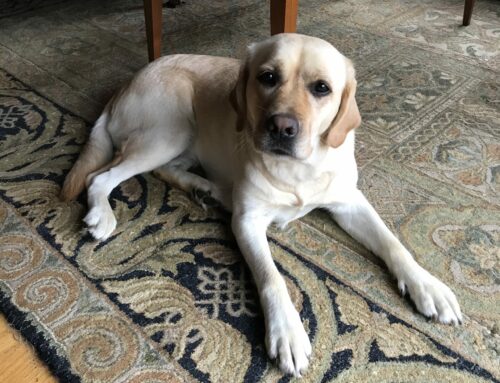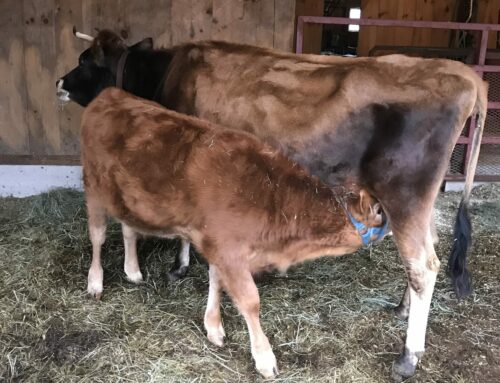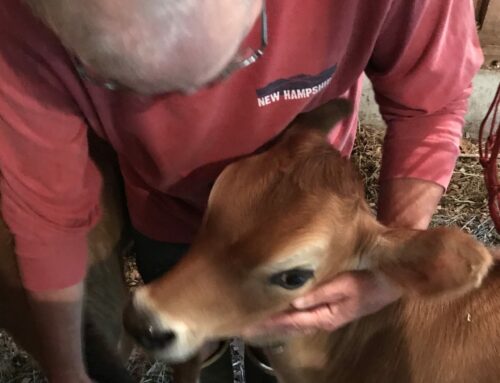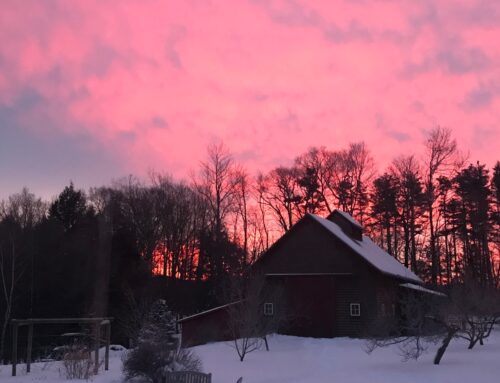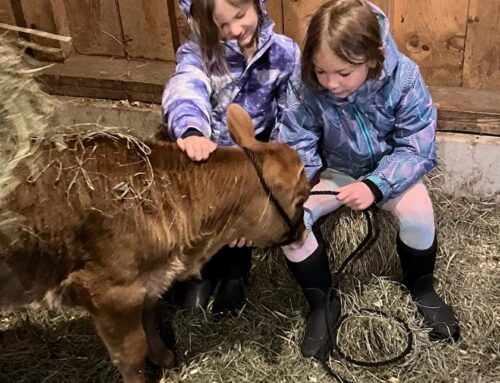In his book, Hannah Coulter, Wendell Berry describes how neighboring farmers helped each other do all sorts of tasks in post-World War II Kentucky. Bringing in tobacco, hay and other crops from the fields was labor intensive work that needed to be done in timely ways or the crop could be lost. Yes, some help was paid, while other help came in the form of other farmers who later received in-kind work. Some older folks, unable to work, were often there for moral support. And one of Berry’s protagonists speaks of the deceased who are also there helping. All of these people are part of “the membership”.
Our small dairy farm produces raw milk, pasteurized yogurt, honey, maple syrup and biodynamic preparations. We have retired from “other work”, but continue to farm as it provides local food for our community and is incredibly life-giving for us. However, our physical stamina is coming into conflict with our “we can do all of this physical work” attitude.
Specifically, bringing in bales of hay from our fields for winter cow sustenance has become an overwhelming task. The Covid-19 pandemic and the lack of labor in our aging area has made us question our ability to continue with cows. So….we asked ourselves if there was another way?
We have a commodity, hay – square bales that weigh about 35 pounds each. It is high-quality hay grown applying biodynamic preparations and organic fertilizers. Friends who have horses love it, and buy hay from us “in the field” after we have made the bales. We need almost 1000 bales for our animals in the winter. The bales need to get to our barn from the field – up to 2 miles away.
Inspired by Wendell Berry’s description of the “membership”, early this summer we approached two hay-buying friends with a proposal: You help us bring in hay for our cows and you get hay for your horses. We get the first 1000 bales, then you get what you need. Your risk, and ours, is a drought where we might not get enough hay. Your help is worth a lot to us. Log your time helping to bring in the hay bales. We know the price we want for a bale of hay, which is based on local prices. The stated goal is that we all must feel satisfied with the final financial exchange. Our financial arrangement will be finalized at the end of haying season. They were excited to create a “membership” with us.
We have just completed our haying work this season. There were young and old moving hay onto trucks in the field and then off of those trucks into our barn. Some bales went in trucks to the barns of our friends. We hired a few helpers and our friends provided themselves and some willing friends. After each afternoon of work we provided supper. The camaraderie has been priceless. Getting folks to leave the meal time afterwards has been the hardest part as the conversations ranged from lighthearted to deeply soul searching.
The experience was close to church for many of us, now unchurched people. My late father, the reverend, talked a lot about the importance of corporate worship. He and my mother were the king and queen of bringing people together for fun, informal gatherings because they knew how life-giving it was for people to share a game or a task. Bringing in hay seemed an interesting combination of corporate and informal ‘worship’ with the quality of conversation and keen interest in the other person. I say worship because there was a sense of the divine in the experience as we connected with a genuine desire to know and help each other.
I look forward to our family conversation about the membership when we gather in “The Next Life”.
Robin Hulbert
Further Reflections on “The Membership”
I wonder if we could take this membership idea a bit further. What if everyone who was interested in purchasing our milk and yogurt was invited to join us to bring in the hay, insuring the cows were fed through the winter? This would connect consumers much more intimately with their food and community. And many hands make light work. It would be a deeper commitment than the typical CSA (Community Support Agriculture) membership that tends to be primarily economic and light on work. And as it could be a larger group, people who were unable to do the physical work could help provide food or care for children of hay hefting parents.
As Robin and I age we wonder how much longer we can provide dairy products for ourselves and others. Yet it is hard to think of stopping, when our lives are so incredibly enhanced by our relationships with the cows and the land. I love the thought of sharing these blessings with others.
We just received a thank you from one of the “members” as we finished storing our last crop of hay yesterday. She said, “”What a delightful dinner, first fire, and companionship last night. A perfect ending to the summer of haying! Thank you so, so much!”.
People working together for the good of the whole, human and otherwise – it is hard to imagine anything better.
Shelley Goguen Hulbert

